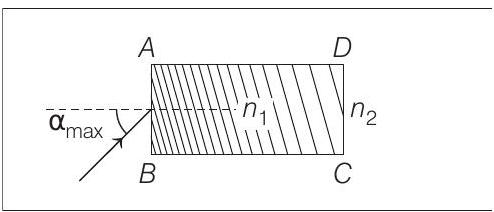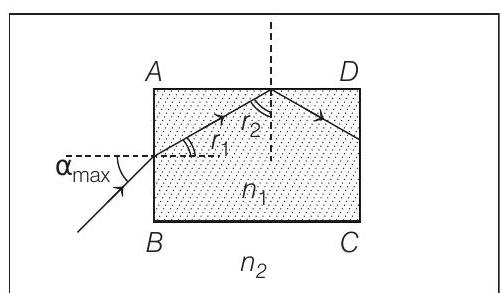Optics 2 Question 12
12. A rectangular glass slab

(a)
(b)
(c)
(d)
Show Answer
Answer:
Correct Answer: 12. (a)
Solution:
- Rays come out only from
(for total internal reflection at

where,
Now, applying Snell’s law at face






